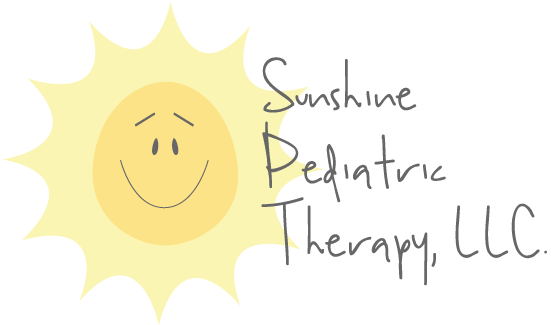
Physical Therapy
At Sunshine, pediatric PTs treat anywhere from fresh out of the NICU all the way to 21years old. We see children for a variety of different reasons, including bone/muscle issues, sports-related injuries, or genetic brain, spine, or nerve disorders.
All PTs have years of training, and at Sunshine, many PTs have earned their Doctor of Physical Therapy degree.
What Does a Pediatric Physical Therapist do?
Pediatric PTs help kids improve their range of motion, strength, flexibility, and movement patterns. The main purpose of any type of PT is to help a person move his or her body how and when they want to the best of their abilities. Pediatric PTs help make everyday activities easier for kids.
What Will My Child Do in a Physical Therapy Session?
For the most part, pediatric physical therapy sessions look and feel like play. PTs engage kids with fun, age-appropriate games and activities to keep them motivated and happy. (Kids should have fun, but physical therapy can be hard work!)
PTs generally help improve gross motor skills; especially tasks that involve large muscle groups (like walking/ throwing). A few things you might see during a session:
-
Play on large exercise balls to build strength
-
Run/hop around to improve coordination
-
Balance on a balance beam
-
Stand on one foot (notice the child in the picture is standing on one leg, but also looks like he's having fun!)
-
Trick your baby into not completely hating tummy time!
Our therapists see a wide range of kids:
-
Recovery from sports- and non-sports-related injuries
-
Delays in development, such as a child who should be walking
-
During treatment for cancer
-
After orthopedic surgery
-
Genetic disorders
-
Before or after stem cell procedures
-
Muscle weakness or imbalances
-
Poor coordination and/or motor planning – which is the ability to think of and carry out a motor act, such as writing with a pencil
-
Nerve/muscle conditions, such as cerebral palsy or brain injuries
During an initial visit, a PT will check your child’s range of motion, strength, development, and see how easily they can stand, walk, and complete tasks appropriate for their age. If there is a delay, they can determine the degree to which your child is behind and where to go from there.
If you have concerns about your child’s development and think they could benefit from physical therapy, make sure to talk to your healthcare professional.
